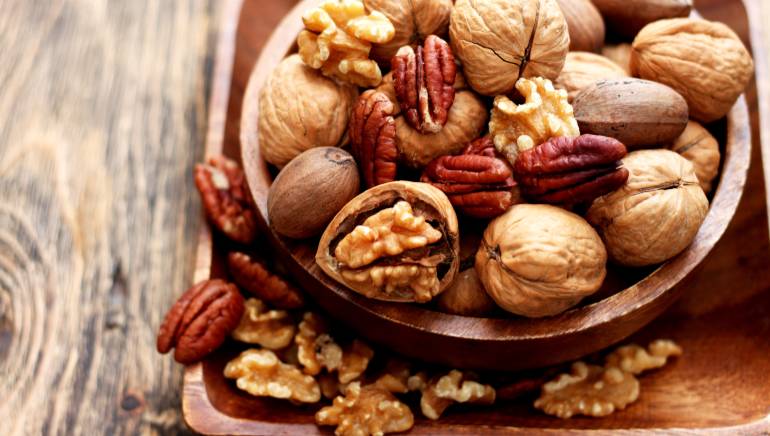Chat with ![]()
Chat with ![]()

You’ve probably heard a lot about omega-3 but do you know why it is important? Well, omega-3 fatty acids are critical components of the membranes that surround each cell in your body. These fatty acids provide calories to give your body energy, help boost heart function, improve psychological health, enhance lung capacity, fight inflammation, aid better immune responses and improve the endocrine (hormone-producing glands) systems.
Omega-3 fatty acids are of 3 types
While your body is equipped to produce a variety of fats that it requires from the foods you consume, omega-3 is an essential fatty acid that has to be consumed directly from food sources. Hence, it is extremely important to choose foods that are rich in omega-3!
Here are 5 sources of omega-3 that can help you stay healthy and boost your immunity:
Seeds such as flax (2,350 mg per serving) and chia (5,060 mg per serving) contain high amounts of omega-3 fatty acids. These seeds are also packed with magnesium, iron and fiber and can help you fight high cholesterol and protect your cells from harmful free radicals produced during metabolic processes.
Walnuts are loaded with omega-3 fatty acids (2,570 mg per serving) and are beneficial for heart health and reducing appetite. Walnuts also offer monounsaturated fats that improve blood sugar and cholesterol levels and have anti-inflammatory properties.
Many types of fish such as salmon (4,123 mg per serving) and mackerel (4,107 mg per serving) are high in omega-3 content. In fact, these fish varieties are also rich in magnesium and protein, which can help with muscle recovery and reducing the risk of heart diseases. Salmon and mackerel are also nutrient-dense, as they provide a solid dose of essential vitamins (B12 and D) and selenium, thereby helping with building immunity and improving psychological health.
Also, Read: 8 foods to eat for a healthy dose of omega-3 fatty acids in the changing weather
Soybeans offer 1,241 mg of omega-3 per serving, and are also a good source of fibre and protein. Consuming soybean helps reduce the risk of heart disease, improves bone health and reduces LDL (bad) cholesterol levels.
Blueberries are low in calories, and packed with nutrients and antioxidants. They provide 437 mg of omega-3 per serving and have up to 9.2 millimoles per litre (mmol) of antioxidants per 100 grams. Antioxidants in blueberries, called anthocyanins, reduce risk factors for heart disease, lowering LDL cholesterol levels and blood pressure, as per research published by the National Library of Medicine.
So, increase your omega-3 intake by including these natural foods in your diet. While omega-3 supplements are available for you to purchase over the counter, it is advisable to stick to natural sources to receive the wholesome benefits of the produce you eat!
Get latest updates on health and wellness along with Healthy Eating, Nutrition, Recipes, Superfoods


